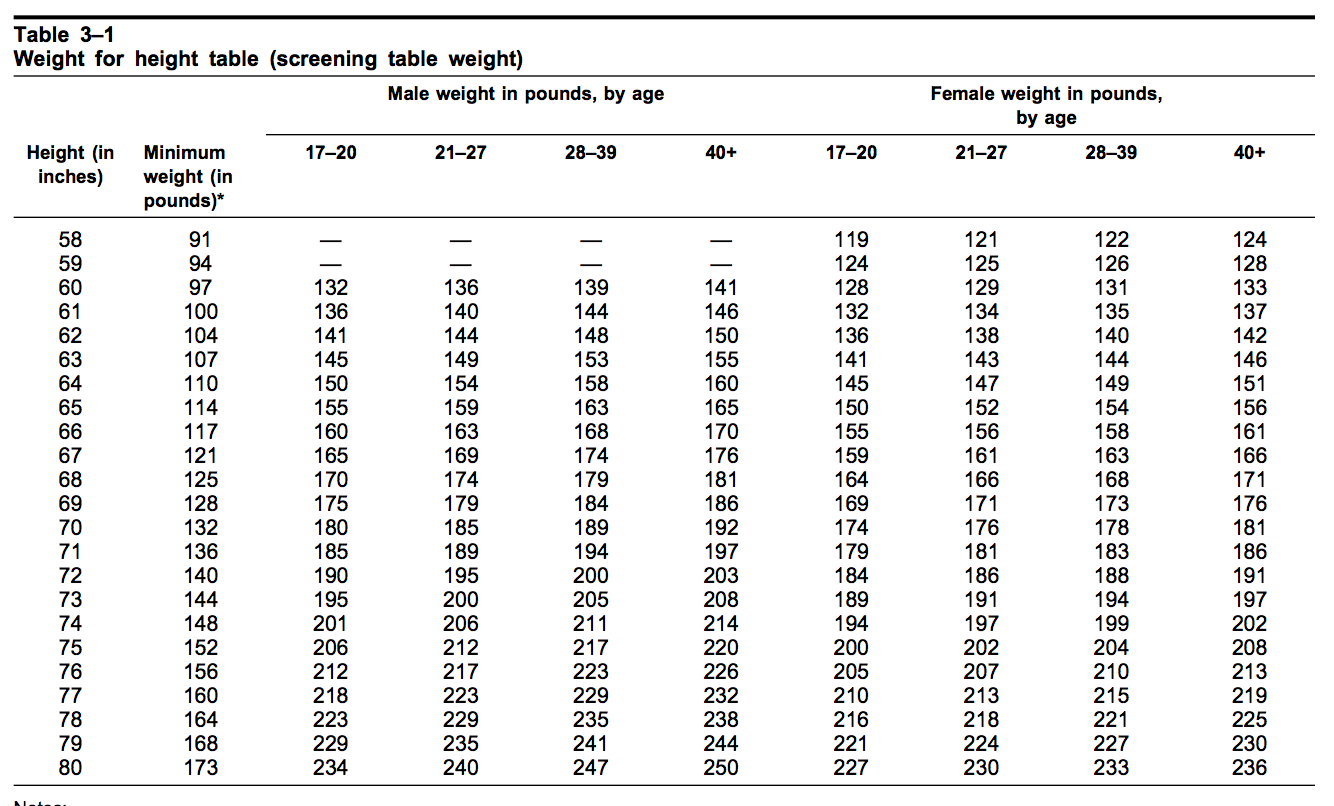The Army Weight Scale is an essential tool used by military organizations to assess the weight of personnel and equipment. This measurement is crucial for maintaining operational readiness and ensuring the safety of soldiers in various missions. In this article, we will delve into the importance of the Army Weight Scale, its specifications, and how it impacts military operations. We will also explore the criteria for weight assessments, the technology behind the scales, and best practices for accurate measurements.
As military operations evolve, so does the need for precise weight measurements. The Army Weight Scale is not merely a device but a critical component that aids in the logistics and planning of military missions. With the growing emphasis on efficiency and effectiveness in military operations, understanding how weight affects mobility, load-bearing capabilities, and overall mission success has never been more vital.
In this extensive guide, we will cover the various aspects of the Army Weight Scale, including its types, usage, and the significance of weight management in the military context. Whether you are a military professional, a logistics officer, or simply curious about military operations, this article is designed to provide you with valuable insights into the Army Weight Scale.
Table of Contents
- Importance of the Army Weight Scale
- Types of Army Weight Scales
- Criteria for Weight Assessments
- Technology Behind Army Weight Scales
- Best Practices for Accurate Measurements
- Impact on Military Operations
- Challenges in Weight Management
- Conclusion and Further Recommendations
Importance of the Army Weight Scale
The Army Weight Scale serves multiple crucial functions within military operations. Understanding its importance can help personnel appreciate the role it plays in mission preparedness and execution.
Operational Readiness
- Ensures soldiers are within weight limits to meet physical standards.
- Aids in the calculation of load distribution for vehicles and aircraft.
- Supports effective resource allocation during deployments.
Safety and Compliance
- Helps prevent injuries related to overloading equipment.
- Ensures compliance with military regulations regarding weight limits.
- Facilitates accurate planning for supply and logistics.
Types of Army Weight Scales
There are various types of Army Weight Scales designed to meet different operational needs. Understanding these types can help military personnel select the appropriate scale for their specific requirements.
Portable Weight Scales
These are lightweight and easy to transport, making them ideal for field operations. They typically have a maximum weight capacity of up to 600 pounds.
Stationary Weight Scales
These scales are designed for use in military installations and can handle larger weights. They are often used for bulk equipment and vehicle assessments.
Criteria for Weight Assessments
Weight assessments in the military are governed by strict criteria to ensure accuracy and reliability. Here are some key factors:
- Calibration of scales before use to maintain accuracy.
- Environment considerations, such as temperature and humidity.
- Personnel training on proper weighing techniques.
Technology Behind Army Weight Scales
Advancements in technology have led to the development of sophisticated weight scales that enhance measurement accuracy and efficiency. Some of the technologies used include:
- Digital sensors for precise weight readings.
- Load cells for measuring weight distribution.
- Integrated software for data collection and analysis.
Best Practices for Accurate Measurements
To ensure accurate weight measurements, military personnel should adhere to best practices:
- Regularly calibrate scales to maintain accuracy.
- Conduct measurements on a flat, solid surface.
- Train personnel on proper weighing procedures and equipment usage.
Impact on Military Operations
The implications of accurate weight measurements extend beyond compliance; they significantly affect military operations:
- Optimized logistics and supply chain management.
- Improved safety for personnel and equipment.
- Enhanced overall mission effectiveness.
Challenges in Weight Management
Despite the importance of weight management, military organizations face several challenges:
- Variability in personnel weight due to deployment and training.
- Logistical issues in transporting large or heavy equipment.
- Compliance with evolving military regulations.
Conclusion and Further Recommendations
In conclusion, the Army Weight Scale is a vital instrument in maintaining operational readiness and safety within military operations. By understanding its importance, types, and best practices for usage, military personnel can ensure effective weight management. We encourage readers to share their thoughts or experiences related to the Army Weight Scale in the comments section below.
For further reading on military logistics and operational readiness, explore our other articles on the site. Your feedback is invaluable to us, and we look forward to seeing you again!
You Might Also Like
Thumb Spy Kids: The Ultimate Guide To Understanding And Enjoying The Thrilling World Of Spy AdventureMeghna Narayan: A Deep Dive Into Her Life And Career
Exploring Mike Rowe's Partner: A Deep Dive Into His Personal Life
Ebonee Noel: The Rising Star In The Entertainment Industry
Emily Compagno Wedding Photos: A Glimpse Into The Beautiful Celebration
Article Recommendations
- Rainbow Bridge Closure What We Know 1846195
- Jonah Hill Sarah Brady Text Messages Full Transcript 1812193
- New Jersey Map Population Shifting Crowded 1975080
- Little Rascals Netflix Where Are They Now 2021 1582862
- Tiffany Gomas Not Real Tiktok Video Ultra Right Beer Photo 1891657
- What Pamela Anderson Has Said About Sex Tape Tommy Lee Pamela Love Story Netflix 1776828
- Sweatpea Owner Speaks About Dog Honored During 2024 Puppy Bowl 1869279
- Donald Trump Calls Jd Vance Town Hall Michigan 1974861
- Joe Alwyn Posts Brooding Photo After Taylor Swift Cozies Travis Kelce 1950189
- Mel Gibson Anti Semitism Racism Accusations 1512808


